Everything You Need To Know About Skin Allergy Tests
Taking the test can help determine your allergens and the right course of treatment.
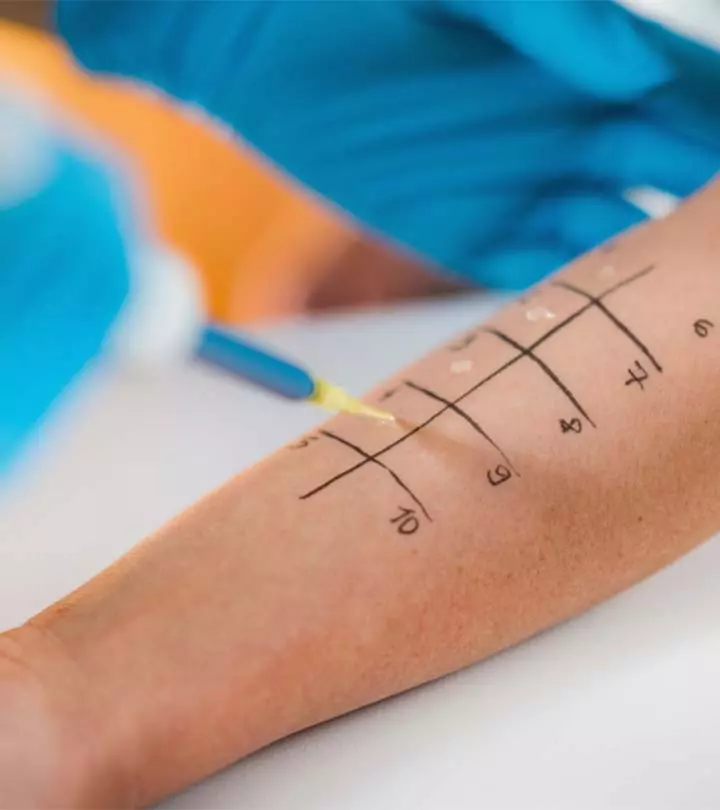
Image: Shutterstock
Many people experience constant allergic reactions without knowing the cause. Allergies happen when the immune system reacts abnormally to a foreign substance. To figure out which allergen you are reacting to, you need to go for a skin or blood allergy test. Skin allergy tests help you identify the cause by exposing your skin to minute amounts of potential allergens. Based on the results, your doctor can suggest a treatment plan.
This article will answer all your questions regarding skin allergy tests. Scroll down to know more!
 Did You Know?
Did You Know?In This Article
What Is An Allergy Skin Test?
An allergy skin test helps you identify the cause of your allergy. According to Dr. Wong Soon Tee, a consultant dermatologist, “An allergy skin test is a gold standard in determining what substance a person is allergic to. It is used in addition to medical history to form an accurate diagnosis.”
Different allergens – like mold, pet dander, bee stings, and peanuts – cause allergic reactions in people. The reaction may take the form of a rash, itchiness, breathing difficulty, nausea, etc. To avoid these allergic reactions, you need to undergo a skin reaction test. Skin testing is one of the most reliable forms of allergy testing. It is a rapid, sensitive, specific, safe, and relatively inexpensive test (1).
A concentrated liquid form of common allergens is used to perform this test. Your doctor identifies the allergen by exposing your skin to the allergens.
 Trivia
TriviaThese tests help in diagnosing allergic conditions and in developing treatment plans. You can get a skin test done if you feel the rash or itchiness you are experiencing is the result of an allergy. Read on to learn about the various symptoms that may warrant a skin allergy test.
Key Takeaways
- Skin testing is a rapid, sensitive, specific, safe, and relatively inexpensive form of allergy testing.
- Headache, breathing trouble, wheezing, chronic cough, itchiness or rash, watery eyes are a few symptoms of allergic reaction.
- The possibility of anaphylaxis reaction is the biggest risk involved in skin allergy tests.
When Should You Get A Skin Allergy Test?

Allergic skin testing helps diagnose a variety of health issues like hay fever, asthma, dermatitis, food allergies, penicillin allergy, bee venom allergy, etc. The common symptoms of an allergic reaction include:
- Headache
- Breathing trouble, wheezing, or chronic cough
- Itchiness or rash
- Watery eyes
- Sore throat
- Swelling of the face, lips, or tongue
- Chest or throat tightness
- Nausea and vomiting
- Abdominal pain and cramps
- Pale skin
- Weak pulse
- Dizziness
If you experience symptoms such as red spots on face, it’s a sign that your skin may be reacting to an allergen. Though skin tests are usually safe for adults and infants, your doctor may advise against them if you are:
- Very sensitive to certain substances.
- Taking medications that may interfere with test results, like antihistamines, antidepressantsi Medications that treat depression, anxiety disorders, and addictions by restoring the brain's neurotransmitter balance. , and heartburn medications.
- Have a severe skin condition like eczema or psoriasis.
Some tests detect immediate allergic reactions, and others detect delayed reactions. Check out the next section to learn about the different types of skin allergy tests.
What Are The Types Of Skin Allergy Tests?

- Skin Prick Test: It is the most common allergy test (2). It identifies allergies to pollen, mold, pet dander, dust mites, and foods. In this test, your skin is pricked with 10-50 potential allergens. Another way of doing it involves leaving the allergen extract on your skin after lightly puncturing the area so that the liquid enters your skin. You may notice reactions within 10-15 minutes of exposure. You may develop a rash or raised round spots (called wheals) if you are allergic to any substance.
Chay, a blogger, shared her experience of undergoing the skin prick test on her personal blog: “Well, it was confirmed to me about 5-6 years ago through a skin prick test that I have allergies to seafood, latex and bananas (which as per my allergologist’s explanation, has a close relevance to each other) and other stuff. But lately, I’ve been suspecting that I might have developed a rather more extensive allergy to a lot of things – including the air. So I decided it’s about time that I undergo another test (i).”
 Trivia
Trivia- Patch Test: A patch test determines the cause of skin allergies like contact dermatitis. The patch with the allergen is kept on your skin with a bandage for 48 hours (3). It is removed to check for a rash or any other reactions. It helps you detect delayed allergic reactions. You may be exposed to 20-30 extracts of potential allergens during this test.
- Intradermal Skin Test: In the intradermal skin test, small amounts of the allergen are injected into the outer layer of the skin. The area is examined after 15 minutes for any reactions. It is often performed when the skin prick test results are inconclusive (3). This test is recommended for airborne irritants, medications, and insect stings.
- Skin Sensitivity Test: These are localized tests done on the skin to patch test reactions to a new product on the skin. This is usually done for cosmetic products, hair dyes or topical medications.
Skin allergy tests are safe and minimally invasive. However, you should know how to prepare yourself before undergoing one of them. Learn how to do that in the next section.
How To Prepare For Skin Allergy Testing

Before performing a skin allergy test, your doctor may ask for your medical history, signs and symptoms, and how you usually treat them. These will help the doctor determine if allergies run in your family or if it is an allergic reaction or something else. The doctor may physically examine you to analyze additional causes and symptoms.
Stop taking medications like antihistaminesi A class of allergy medications used to treat coughing, sneezing, and watery eyes caused due to allergies. 7 days before the test (1). “Before having an allergy skin test, talk to your allergist or doctor about all your current prescription and over-the-counter medications to find out what medications can interfere with your test,” adds Dr. Wong Soon Tee. These medicines can stop your immune system’s response to allergens and affect the results.
Follow your doctor’s instructions carefully for better results. If you still have doubts about the test, keep reading to learn more about what to expect during the test.
What Should You Expect During A Skin Allergy Test?

Your doctor will perform the test based on your symptoms. Your body will show reactions at the test site if you are allergic to any allergens. The clinician will record all the observations of the test. You may have mild symptoms like itchy skin, watery eyes, or congestion. “The prick test and intradermal tests may hurt a little. You should also expect an itch where the allergens were placed if you are sensitive to any of the allergens,” Dr. Wong Soon Tee adds. A dermal skin irritation test is performed on the outer layer of the skin and a positive test may cause redness and itching.
Your symptoms may clear up in one or two hours after the test.
Allergy skin tests are safe because only a small amount of allergens are placed on your skin. However, you will have to take necessary after-care measures. Keep reading to learn about what you need to do.
What Should You Do After A Skin Allergy Test?
The marks or itching from the test fade away in a few hours. You may use a mild cortisone creami A steroid medication used to treat dermatologic conditions such as eczema, psoriasis, dermatitis, and inflammation. to reduce itching. If it is a patch test, do not wet the bandage area.
If the test results are not clear, your doctor may recommend more tests. Once you know your triggers, your doctor can start the treatment plan accordingly. You may be prescribed medicines to control your symptoms.
While these skin inflammation tests are safe, there are still some potential adverse reactions that you should be aware of. Find out more in the next section
Risks And Side Effects Of Skin Allergy Testing

The biggest risk involved in skin allergy tests is the possibility of an anaphylaxisi A fatal allergic reaction caused by an allergen that leads to skin rashes, nausea, vomiting, difficulty breathing, and shock. reaction. However, you don’t need to worry as your medical provider will be prepared to treat it. You may require emergency care if you experience a severe reaction during an allergy test.
Intradermal skin testing has a higher risk of anaphylaxisi A fatal allergic reaction caused by an allergen that leads to skin rashes, nausea, vomiting, difficulty breathing, and shock. due to the higher concentration of allergens (3). When an allergen is introduced to the skin, mast cells may cause more than a local reaction. The healthcare professional may perform skin disorder tests like biopsy or blood tests to diagnose complex skin conditions.
The Final Takeaway
Allergy skin tests are safe and minimally invasive. There are several types of skin allergy tests, and your doctor will choose one based on your symptoms and triggers. In most cases, the test results are accurate in finding the allergen. But, sometimes, there is a chance of an inconclusive result and your doctor may prescribe more tests to determine the allergen. A positive test result helps the doctor out what you are allergic to and plan your treatment accordingly.
Frequently Asked Questions
Is there any blood test for skin allergy?
Yes, there is an allergy blood test that helps detect allergies caused by pollens, pet dander, and dust mites.
Is skin allergy testing painful?
No, skin allergy testing is not painful. However, you may experience itchiness and irritation during the process, which may subside after a few hours.
How accurate is the skin test for allergies?
Anecdotal evidence suggests skin tests are reasonably accurate in detecting allergies. However, if the dose of allergen is large, it may show positive effects in even those who are not allergic. Therefore, with the right dosage and methods, skin allergy tests can be considered reasonably accurate.
What foods are tested in allergy skin testing?
Skin prick test is used for detecting food allergies. The most common food items that cause allergies are milk, soy, eggs, tree nuts, fish, peanuts, shellfish, and wheat.
Gain important insights into allergy skin tests before getting them. Click on this informative video to understand more about how they work and what to expect during these tests.
Personal Experience: Source
StyleCraze's articles are interwoven with authentic personal narratives that provide depth and resonance to our content. Below are the sources of the personal accounts referenced in this article.
i. TODAY: Skin Prick Test – A Meeting with Allergenshttps://mykichaykit.blogspot.com/2011/12/today-skin-prick-test-meeting-with.html
References
Articles on StyleCraze are backed by verified information from peer-reviewed and academic research papers, reputed organizations, research institutions, and medical associations to ensure accuracy and relevance. Read our editorial policy to learn more.
- Appropriate Allergy Testing And Interpretation
https://www.ncbi.nlm.nih.gov/labs/pmc/articles/PMC6188374/ - The Skin Prick Test
https://pubmed.ncbi.nlm.nih.gov/29552869/ - Allergy Testing
https://www.ncbi.nlm.nih.gov/books/NBK537020/
Read full bio of Dr. CP Thajudheen
Read full bio of Swathi E
Read full bio of Anjali Sayee
Read full bio of Monomita Chakraborty

















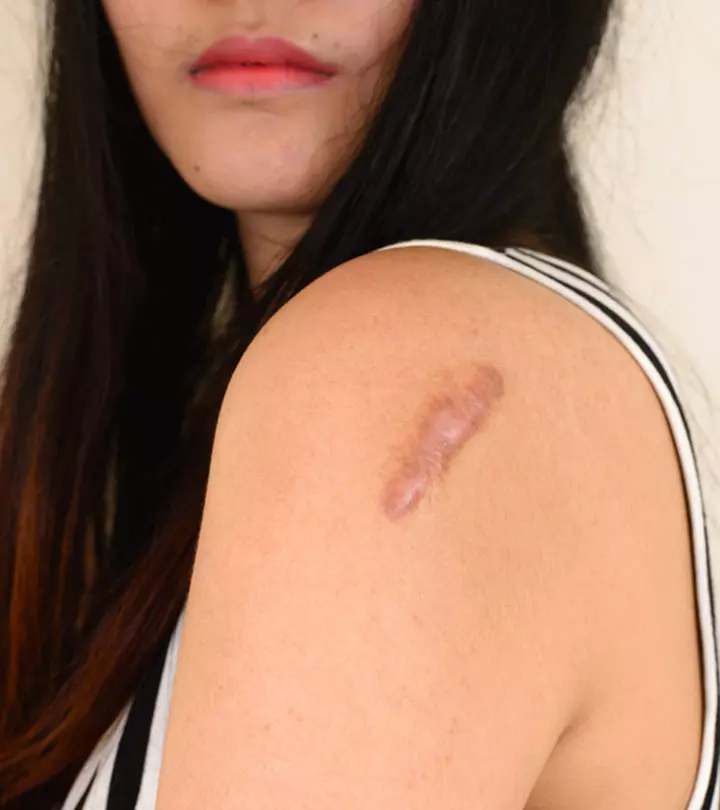
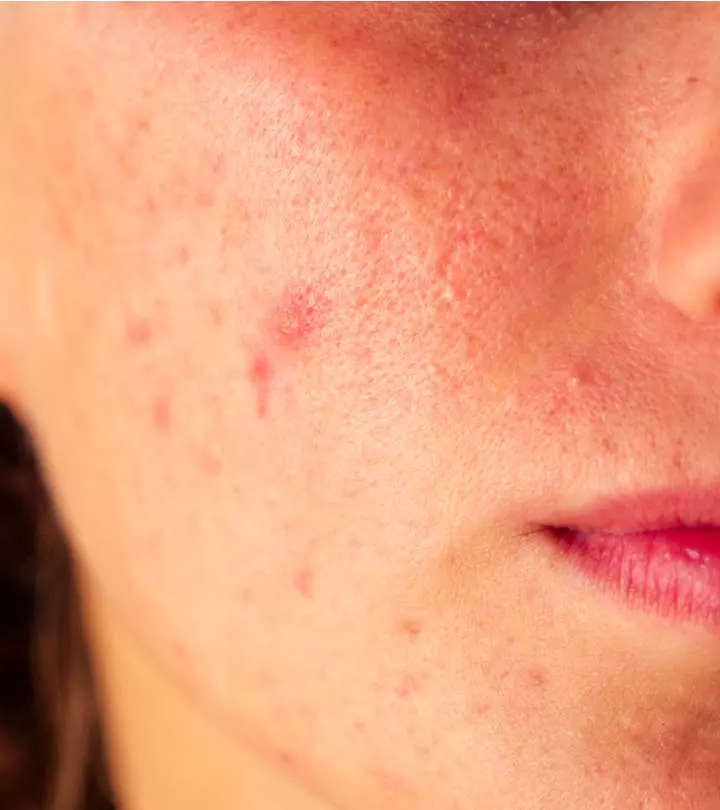

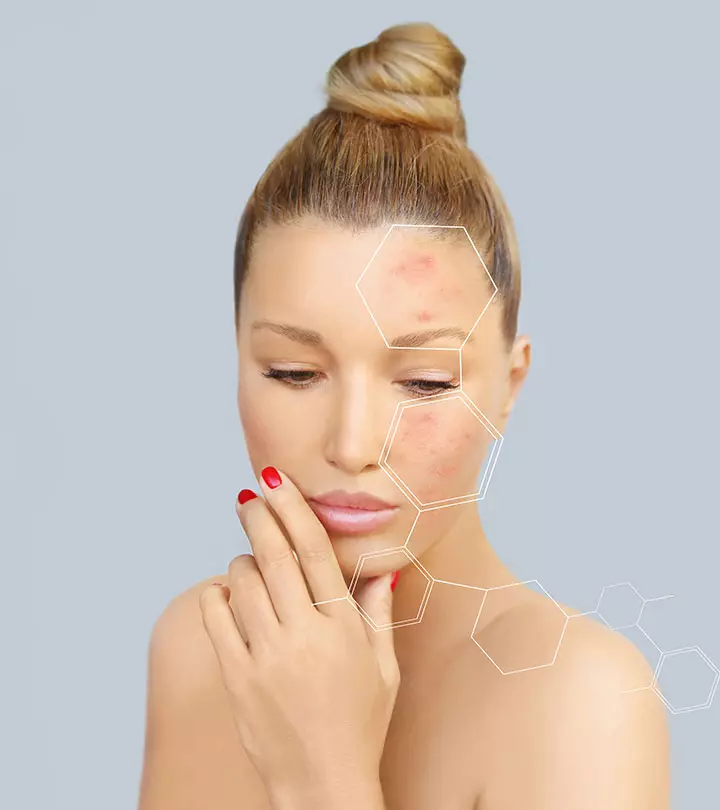






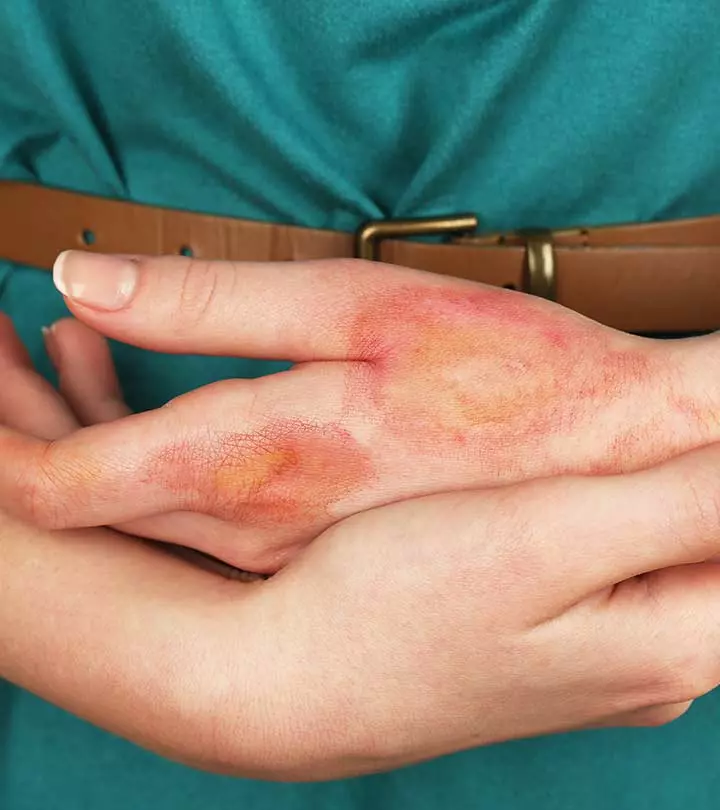
Community Experiences
Join the conversation and become a part of our empowering community! Share your stories, experiences, and insights to connect with other beauty, lifestyle, and health enthusiasts.